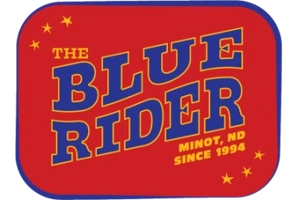Earlier this week Senator Hoeven issued a news release outlining progress made in creating reasonable nutrition standards for school lunch programs. The new regulations create a high nutritional standard, but also provide school lunch administrators some common sense flexibility in creating menus. The full news release follows below.
— Official News Release, Senator Hoeven —
WASHINGTON – Senator John Hoeven, who serves on the Senate Agriculture Committee, today announced that he and colleagues have reached an agreement to improve nutrition standards for school meals. The agreement benefits students while easing some regulatory mandates on whole grains and sodium to alleviate unintended challenges facing school meal programs.
The agreement, forged in collaboration with the Senate Agriculture Committee, the US Department of Agriculture (USDA), the White House and the non-profit School Nutrition Association (SNA), will be included in the Senate Agriculture Committee’s Child Nutrition Reauthorization bill, scheduled to be taken up by the committee on Wednesday, January 20.
“We worked with school nutrition professionals from across the country to ensure that our schools have flexibility in meeting sodium and whole grain requirements, while maintaining healthy nutritional standards,” said Hoeven. “The standards we’ve agreed on make sure that our schools can serve healthy and nutritious meals that students like, while also making their budgets. This is all about providing both good nutrition and flexibility.”
Last year, Hoeven and Senator Angus King (I-Maine) introduced the bipartisan Healthy School Meals Flexibility Act in the Senate. The measure sought to provide permanent flexibility for schools to comply with the USDA’s sodium and whole grain requirements under the National School Lunch and Breakfast programs. Today’s agreement incorporates key parts of the Hoeven-King legislation, notably with regard to whole grains and sodium.
AGREEMENT SUMMARY:
WHOLE GRAINS: Under current regulations, all grains offered with school meals must be whole grain rich – down to the croutons on the fresh salad bar. This agreement requires 80 percent of the grains offered with school meals to be whole grain rich, allowing schools to offer occasional servings of enriched grain products like white rice or corn tortillas to which nutrients have been added after processing. The change provides flexibility for schools struggling with product availability and allows schools to make special exceptions to appeal to diverse student tastes and regional preferences for items like white tortillas or biscuits that don’t meet current standards.
SODIUM: Schools have made great strides in reducing sodium to meet Target 1 sodium levels, effective on July 1, 2014. However, school nutrition professionals have warned that later sodium targets will push many healthy options, like low-fat deli sandwiches, soups and salads off the menu, due in part to naturally occurring sodium in foods.
Under the agreement, schools gain two additional years to meet Target 2 limits, which will now take effect on July 1, 2019. Starting in 2019, a study will be conducted to determine whether scientific research supports the final sodium limits (effective July 1, 2022) and whether food companies are capable of preparing foods that meet those limits. The study will also evaluate the impact of Target 2 limits on student lunch participation, food cost, safety and food service operations.
A LA CARTE: Smart Snacks in School regulations (effective July 1, 2014) severely limited the items sold in cafeteria a la carte lines, prohibiting the sale of everything from low-fat, whole-grain pizza to salads or hummus with a side of whole grain pretzels. As a result, students have fewer healthy choices in the cafeteria and schools have collected less revenue to offset the higher cost of meeting new regulations. This agreement will establish a working group to examine the impact of a la carte restrictions and recommend to USDA a list of allowable nutrient-rich food exemptions for a la carte sale.



